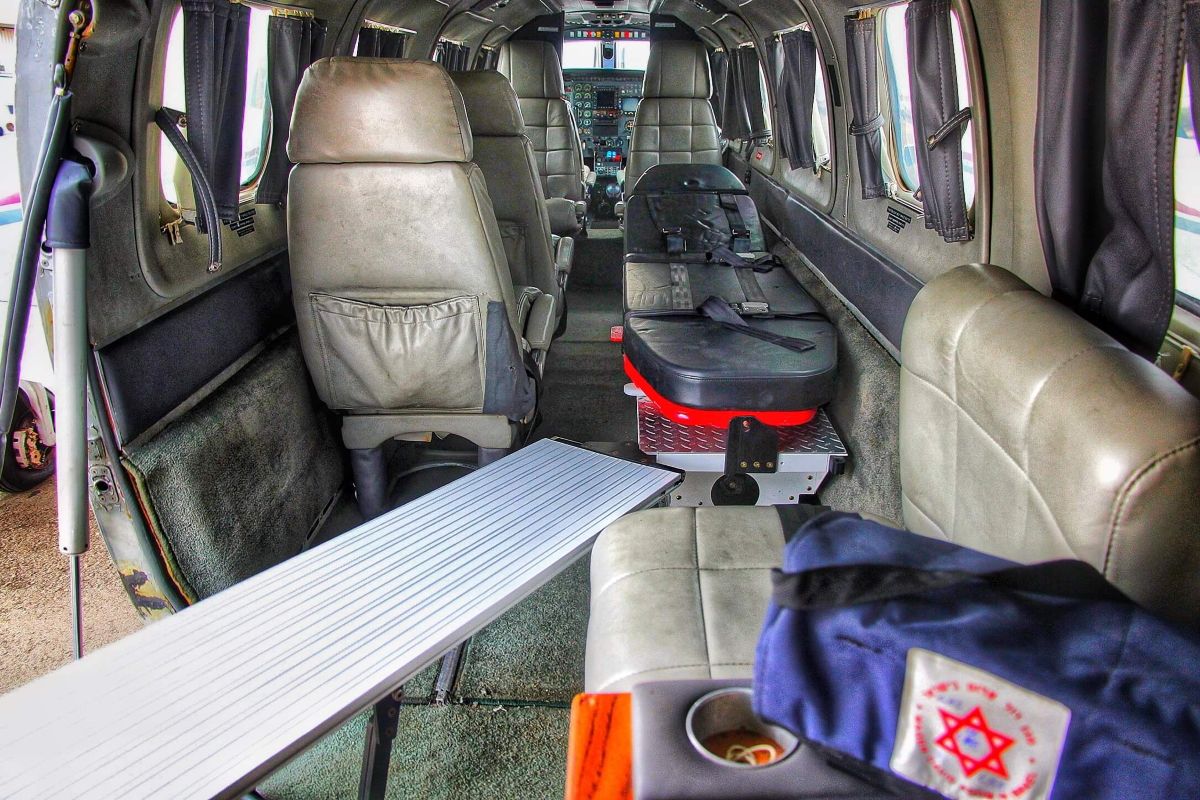Medical repatriation, also known as medical evacuation or medevac, is the process of transferring a patient from one location, often a foreign country, back to their home country or a more suitable medical facility for further treatment and care. This is typically done when a person becomes seriously ill or injured while traveling, working, or living abroad and requires specialized medical attention that is not readily available at their current location.
Medical repatriation is a crucial service that ensures individuals receive the necessary medical care when they are far from home and face serious health issues. It helps bridge the gap between healthcare systems and ensures that patients can access the treatment they need to recover or stabilize their condition.
For consultation or booking medical repatriation flight services contact us >
How often are patients medically repatriated?
The frequency of medical repatriation varies widely and depends on several factors, including the number of people traveling or living abroad, the nature of their activities, and their overall health.
It's important to note that while medical repatriation can be necessary in some situations, it is not an everyday occurrence for most travelers or expatriates. Many people travel abroad without experiencing serious health issues that require repatriation.
However, it is essential for individuals traveling or living abroad to have appropriate travel or health insurance that covers medical repatriation to ensure they are prepared for unexpected emergencies. The actual frequency of medical repatriation cases may also vary by region and over time.
What are the challenges patients face during medical repatriation?
The medical repatriation process can be complex and challenging for both patients and their families. Some of the common challenges that patients may face during this process include:
Health Condition Instability
Patients requiring medical repatriation are often in critical or unstable health conditions. The challenge lies in ensuring their stability during transportation, which may involve air travel or long-distance journeys. This requires careful medical monitoring and intervention.
Logistical Complexities
Coordinating medical repatriation involves numerous logistical details, including arranging transportation, securing medical clearances, coordinating with healthcare facilities, and obtaining necessary permits. These logistics can be challenging, especially in international cases.
Insurance and Payment Issues
Determining who bears the cost of medical repatriation can be a significant challenge. Patients and their families may need to navigate insurance coverage, including travel insurance, health insurance, or international insurance policies, to understand what is covered and what expenses they must cover themselves.
Communication and Language Barriers
In international medical repatriation cases, language barriers can complicate communication between patients, their families, medical professionals, and transportation staff. Clear communication is vital for the patient's safety and care.
Travel Restrictions and Visa Issues
Patients may encounter visa or immigration-related challenges when repatriating to their home country. Ensuring that they have the necessary documents and permissions to enter their home country can be a bureaucratic hurdle.
Medical Equipment and Medication
Patients with complex medical needs may require specialized equipment or medications during the repatriation process. Ensuring the availability and proper functioning of this equipment can be challenging, especially during long-distance journeys.

Continuity of Care
The transition between healthcare facilities can be challenging as the patient moves from one medical team to another. Maintaining continuity of care and ensuring that all necessary medical information is transferred accurately is crucial for the patient's well-being.
Emotional and Psychological Stress
Patients and their families often experience emotional and psychological stress during the medical repatriation process. The uncertainty of the situation, the seriousness of the patient's condition, and the separation from familiar healthcare providers can be emotionally taxing.
How to ensure a patient stability for air travel?
Ensuring that a patient is stable enough to travel via air ambulance, especially in the context of medical repatriation, is a critical step in the process. It requires careful assessment and planning by healthcare professionals such as: medical assessment, consultation with specialists, stabilization, oxygen and ventilation needs, medical escort team, customized care plan, medical equipment, ground transportation and continuous monitoring.
It's important to note that not all patients are medically fit for air travel, and the decision to repatriate a patient via air must be made based on their individual medical condition and needs. The assessment and planning process is carried out by a team of healthcare professionals with expertise in medical repatriation, and their primary concern is the safety and well-being of the patient during the journey.
For consultation or booking medical repatriation flight services contact us >